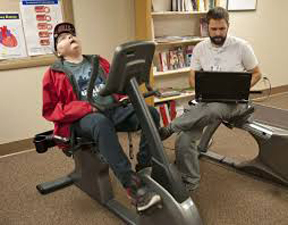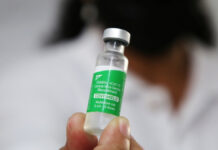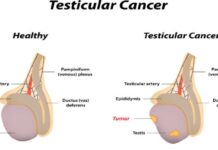
MISSOULA, Mont.: For the first time since he was about 7 years old, J.D. Cross walked more than 20 feet on a recent Sunday without having to take a break or rely on an oxygen tank.
Powered by a set of new lungs and unshakable optimism, every step of Cross’ journey defied grim medical statistics and a legion of doctors who were skeptical the Missoula 20-year-old would ever live this long –
or experience a walk through Seattle’s Pike Place Market.
“It was awesome – we walked miles,” Cross described of the turning point in his life.
“It feels so good to walk more than 15 feet without having to take breaks,” said Cross, who is just nine weeks out from lung transplant surgery at the University of Washington Medical Center.
“It’s weird not having a hose strapped to my face and not carrying around a 10-pound oxygen tank.”
In what their longtime Missoula physician describes as “lightning striking twice,” Cross and his brother Wesley, 18, were born with an extremely rare form of lung disease – ABCA3 surfactant deficiency – that causes deadly scarring of the lung tissue.
On Dec. 1, Wesley marked his two-year anniversary of living with new lungs.
He honored the occasion by continuing with his multiple weekly physical and occupational therapy sessions at Community Medical Center.
Unlike his brother’s successful post-surgery outcome, Wesley had multiple strokes after his transplant.
The unexpected event immediately left the right side of his body paralyzed and caused swelling to his brain, which forced doctors to remove about a third of his skull and to put him in a medically induced coma for about a month, he said.
Aside from his mother Daniele, sister Ashley and other family members, few people expected Wesley would live through the trauma.
If he did, he would likely never walk or speak again.
But like his big brother, Wesley’s will to thrive was greater than any medical prediction.
“I was angry and scared at the same time,” Wesley said as he described what it was like to awaken to his new physical challenges. “But when I started to move my leg, it gave me hope.”
“We started doing the happy dance when we saw a foot move,” Ashley said. “He was in a coma a long time, and we waited a long time for any sign. When he did, the doctors thought we were imagining it until they saw it for themselves – and then they were surprised.”
After Wesley emerged from the coma and his health stabilized – a year after the transplant and living with a special helmet to protect his head at the surgery site – surgeons reassembled his skull with bone they had removed.
“I had all these tubes in the back of my head for a few days, so that was uncomfortable,” Wesley quipped, “but it was good to get my head back together.”
These days, Wesley lives in Bonner next door to Ashley, who is a certified nursing assistant and his primary caretaker.
While they wait for their mother and brother to return from Seattle, they’re working on improving Wesley’s health.
There are signs that his body is rejecting the lungs that have extended his life, and it’s likely he’ll need another transplant in a few years, Ashley explained.
Despite that challenge, Wesley said he appreciates the improved breathing the lungs give him, and he’s enjoying the simple act of walking – and living without having to rely on an oxygen tank or the yards of tubing strapped to his face.
His leg function has returned and he’s focused on getting his arms working again.
“Things are pretty good,” Wesley said recently after taking a spin on a recumbent bicycle at Community. “I have a life coach and I’m thinking about getting a job.”
the Crosses’ burden has been long and nearly bankrupted them, Daniele said. A home health aide, she hasn’t been able to work as she tends to her sons’ many needs.
Added to that, the forced relocation to Seattle to wait for a perfect transplant match and the need to stay there during the long recovery process have been an expense far beyond what Medicaid pays for.
Reimbursement for living expenses is about $25 a day – or about $750 a month – and rentals near the Seattle hospital average $1,800 a month for a one-bedroom apartment or $2,300 for a two-bedroom.
“Dani is the most amazing woman,” said Angela Wagner, a University of Washington Medical Center social worker who has been working closely with the family for the past several years. “Not only has she gotten her boys this far as a parent, she is a champion and her sons’ best advocate. She is so humble about this – she has handled this whole situation with optimism, with grace, with hope and a smile on her face.
“When I think of her – and all of them – two words come to mind: resilience and strength.”
Up until the boys made it onto the lung transplant waiting list in 2011, they had spent roughly one week – or more – every month for 10 years at Community Medical Center getting the transfusions or steroids and other medications necessary to keep their lungs operating.
Although infections and myriad setbacks – some life-threatening – filled their world, Daniele was the force that pushed them forward.
“It’s been a rocky road, that’s for sure,” Daniele said in a phone interview from Seattle, where she is living with J.D. until doctors release him from their care and they can return to Montana.
“I knew with the transplants we might be trading one set of problems for another, but I didn’t expect Wesley to have the strokes or be paralyzed.
“It’s like having a newborn all over again, having to help him learn to talk and walk again,” she said. “And with James, he went into respiratory failure after Mother’s Day and was hospitalized. After being on the transplant waiting list for nearly two years, he was taken off of it for 80 days because he was so sick.”-AP






